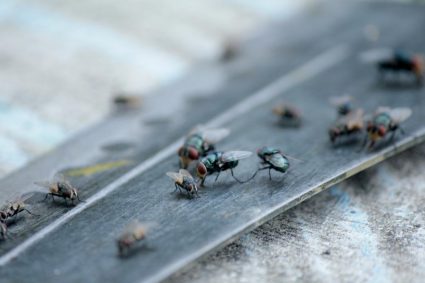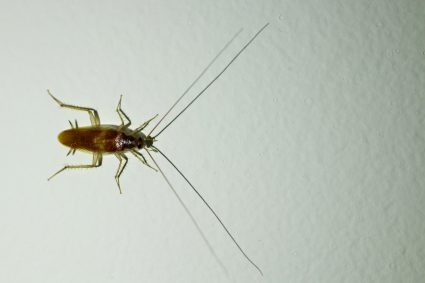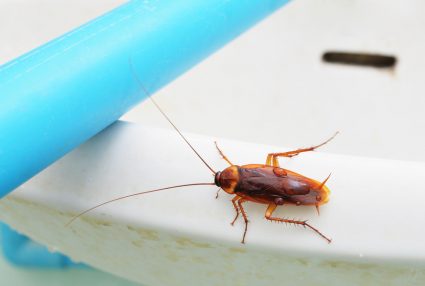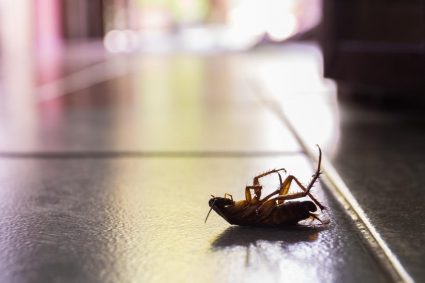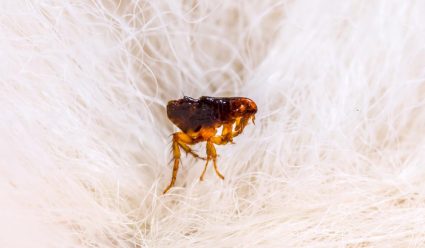
In every home, the kitchen is a vital hub of activity. Unfortunately, it can also become a magnet for ants. These tiny invaders can quickly turn from a minor nuisance into a major problem, infiltrating your food storage and compromising hygiene. In this comprehensive guide, we will explore effective methods on how to keep ants out of cabinets.
To keep ants out of your cabinets, start by maintaining cleanliness to eliminate food sources. Use natural repellents like vinegar, pepper, or essential oils, and seal any cracks or gaps where ants may be entering. If the problem persists, use commercial ant baits or consider hiring a professional exterminator.
Why are Ants Attracted to Kitchen Cabinets?
Ants are attracted to kitchen cabinets mainly due to the presence of food sources and shelter. Kitchens often have crumbs, spills, and open food containers that provide ants with easy access to food. Ants are particularly attracted to sugary and starchy substances, such as honey, syrup, and bread. Additionally, kitchen cabinets offer a safe and protected environment for ants, away from predators and harsh outdoor conditions.
Common Types of Ants that Infest Kitchen Cabinets
The types of ants that typically infest kitchen cabinets include little black ants, pharaoh ants, odorous house ants, Argentine ants, pavement ants, sugar ants, ghost ants, big-headed ants, white-footed ants, and acrobat ants. These ants find their way into kitchens through cracks in windows, doors, and other openings.
Immediate Steps to Take When You Notice Ants in Your Cabinets
When you discover ants in your cabinets, it’s crucial to act immediately. First, eliminate their food source by cleaning any food spills, crumbs, or residues in your cabinets and on your countertops. Identify the ants by observing their size and color, which will help determine the appropriate treatment. Use natural repellents like vinegar, pepper, or cinnamon to deter the ants, and lay down ant bait near areas of activity. Finally, seal any cracks, gaps, or openings in your cabinets and around your home where ants may be entering.
Natural or Household Items to Deter Ants
Several natural or household items are effective in deterring ants from cabinets. These include vinegar, coffee grounds, cornmeal, chalk, baby powder, tea tree oil, chili powder, lemon or grapefruit peels, and a mixture of dish soap and glass cleaner. Consistently maintaining cleanliness in your kitchen is a key deterrent for ants.
Commercial Products for Ant Control
If natural remedies prove ineffective, several commercial products can help, such as Terro Liquid Ant Baits, Raid Ant Killer Baits, Amdro Ant Bait Granules, and Mighty Mint Insect and Pest Control Peppermint Oil. These products target and eliminate entire ant colonies and are suitable for both indoor and outdoor use.
Maintaining an Ant-Free Cabinet Environment
Maintaining an ant-free cabinet environment involves consistent cleanliness, storing food in airtight containers, using natural ant repellents, sealing entry points, regularly inspecting your cabinets, and using ant baits when necessary.
Preventive Measures to Avoid Ant Infestation
Preventive measures include maintaining cleanliness, properly storing food, using vinegar as a natural deterrent, sealing entry points, disposing of garbage regularly, avoiding leaving food out, and using ant baits when you notice any ant activity.
Dealing with Severe Ant Infestations
If the ant infestation persists despite your best efforts, it may be time to call a professional exterminator. If you’ve tried DIY solutions without success, see large quantities of ants, or suspect you have carpenter ants, it’s time to seek professional help.
Sealing Cabinets to Prevent Ants from Entering
To seal cabinets and prevent ants from entering, inspect your cabinets for any gaps, cracks, or crevices, and use a clear silicone caulk or similar sealant to fill any gaps or cracks. You can also use natural deterrents like pepper, vinegar, or essential oils.
It’s important to remember that keeping ants out of your cabinets requires a combination of preventive measures, early detection, and effective treatment. With the right approach, you can maintain a clean, ant-free kitchen.
Frequently Asked Questions
How does vinegar deter ants?
Vinegar disrupts the scent trails that ants use to communicate and navigate, making it a natural deterrent.
Why is it important to identify the type of ant in my kitchen?
Different types of ants have different behaviors and preferences. Identifying the type of ant can help you choose the most effective treatment method.
What are scent trails in the context of ants?
Ants leave a scent trail for other ants to follow once they’ve found a food source. This is how you often see ants moving in a line.
How does using airtight containers help prevent ants?
Airtight containers prevent food odors from attracting ants and also keep ants from accessing the food.
Why do I need to call a professional exterminator for carpenter ants?
Carpenter ants can cause structural damage to your home by burrowing into wood. Professional exterminators have the necessary tools and expertise to eliminate a carpenter ant infestation and prevent further damage.

